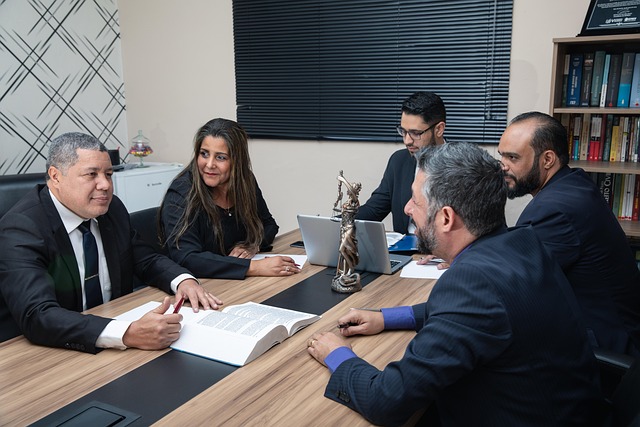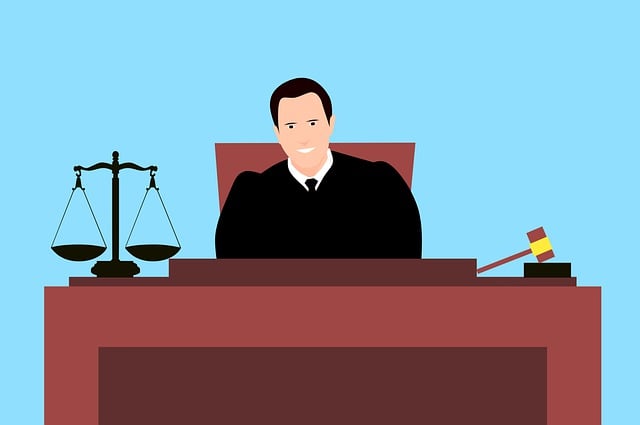
Category: Littleton Colorado Intellectual Property Law
Littleton Colorado Intellectual Property Law: A Comprehensive Analysis
Introduction
In the dynamic landscape of global intellectual property (IP) law, certain regions have emerged as hubs for innovation and legal expertise, with unique frameworks that shape their intellectual property regimes. One such notable area is Littleton, Colorado, where a distinct set of laws and practices has evolved, creating a specialized legal environment. This article delves into the intricacies of Littleton Colorado Intellectual Property Law, exploring its definition, historical development, global implications, economic impacts, technological influences, policy frameworks, challenges, case studies, and future prospects. By examining these aspects, we aim to provide an in-depth understanding of this specialized field and its significance in the modern era.
Understanding Littleton Colorado Intellectual Property Law
Definition: Littleton Colorado Intellectual Property Law refers to the body of legal principles and regulations that protect and govern intellectual assets within the boundaries of Littleton, Colorado, USA. This includes laws pertaining to patents, trademarks, copyrights, trade secrets, and related areas, tailored to the unique needs of the region’s businesses and innovators.
Core Components:
- Patent Law: Covers inventions, granting inventors exclusive rights for a limited period, fostering innovation through protection against replication.
- Trademark Protection: Ensures brand identities are safeguarded, enabling businesses to establish and maintain their unique market presence.
- Copyright Legislation: Protects original works of authorship, such as literature, art, music, and software, promoting creativity and artistic expression.
- Trade Secrets: Provides legal remedies for confidential business information, including formulas, processes, and customer lists, that are not publicly disclosed.
- Computer-Related IP: Addressing digital innovations, this aspect includes laws related to computer programs, software patents, and digital copyright issues.
Historical Context: The development of Littleton’s intellectual property law can be traced back to the region’s burgeoning tech industry and the need for specialized legal support. Over time, local attorneys and legal scholars collaborated with business leaders to create a legal framework that encourages innovation while providing adequate protection. This evolution has been shaped by both state-level legislation and federal IP laws, ensuring compliance with broader US intellectual property standards.
Significance: Littleton Colorado Intellectual Property Law plays a pivotal role in fostering entrepreneurship, attracting startups and established tech companies, and cultivating a thriving innovation ecosystem. The specialized nature of these laws allows for more efficient dispute resolution, faster patent applications, and tailored legal advice, ultimately contributing to the region’s economic growth and technological advancement.
Global Impact and Trends
The influence of Littleton Colorado Intellectual Property Law extends far beyond its geographical boundaries, as the region has gained international recognition for its robust IP protection and supportive business environment.
- International Adoption: Many foreign countries and regions have adopted similar IP protection models, recognizing the success of Littleton’s approach. This has led to increased global harmonization, making it easier for international businesses to navigate IP laws across borders.
- Tech Industry Migration: The tech sector’s global migration towards regions with robust IP protections has been a significant trend. Littleton’s reputation as an intellectual property haven has attracted multinational corporations and startups alike, contributing to its economic diversification.
- Cross-Border Collaboration: The ease of doing business in Littleton has encouraged cross-border partnerships and collaborations, fostering innovation through diverse cultural perspectives and knowledge sharing.
- Regional IP Centers: Several countries have established regional IP centers modeled after Littleton’s legal framework, aiming to streamline IP protection processes and reduce costs for local businesses.
Economic Considerations
Intellectual property laws significantly impact economic dynamics, and Littleton’s specialized approach has contributed to the region’s robust economy.
- Market Dynamics: The strong IP protection and dispute resolution mechanisms have fostered a vibrant market environment where ideas are freely shared yet rigorously protected. This has led to increased competition, innovation, and product diversification.
- Investment Patterns: Littleton has become an attractive destination for venture capital and angel investors, who recognize the potential for high returns from protecting and commercializing innovative technologies. The region’s IP laws provide a clear legal framework for investment, reducing risk perceptions.
- Economic Growth: The tech industry, driven by robust IP protections, has been a primary contributor to Littleton’s economic growth. This sector employs a significant portion of the population and generates substantial revenue through local business operations and tax contributions.
- Revenue Generation: The region’s legal services sector has expanded due to the increased demand for IP-related advice and representation. This contributes to local employment and government revenues through various fees and taxes.
Technological Advancements and Their Impact
Technological progress has been a catalyst for intellectual property law evolution, and Littleton has kept pace with these advancements.
Key Technological Impacts:
- Digital Transformation: The rise of digital technologies has led to increased IP challenges, such as online copyright infringement, software patents, and data protection. Littleton’s legal community has adapted by addressing these issues through updated legislation and specialized courts.
- Biotechnology: Rapid advancements in biotechnology have sparked debates over patent eligibility for living organisms and genetic material. Local law firms have become experts in navigating these complex legal territories, attracting bio-tech startups and research institutions.
- Artificial Intelligence (AI): AI’s impact on intellectual property is multifaceted, involving issues like AI-generated content copyright, machine learning algorithms as trade secrets, and the patentability of AI inventions. Littleton’s lawyers have been at the forefront of shaping legal guidelines for these emerging technologies.
- Blockchain and Cryptocurrency: The emergence of blockchain technology and cryptocurrencies has presented new challenges and opportunities for IP protection. Local attorneys have adapted their practices to address tokenization, smart contracts, and digital asset ownership.
Policy Frameworks and Legal Developments
Littleton’s intellectual property law is guided by a comprehensive policy framework that includes both local and federal legal provisions.
- Local Legislation: The Littleton City Council enacts local ordinances to support IP protection, often aligning with state laws. These include regulations on business licensing, data privacy, and consumer protection, which indirectly impact IP practices.
- State-Level IP Laws: Colorado’s state legislation provides the foundation for patent, trademark, and copyright protections, ensuring compliance with federal standards while allowing for regional nuances.
- Federal IP Laws: The US Patent and Trademark Office (USPTO) and the Copyright Office play a crucial role in processing applications and enforcing federal IP laws within Littleton, ensuring consistency across the nation.
- Court Systems: Specialized IP courts handle disputes, offering expertise in intellectual property law. These tribunals have contributed to efficient dispute resolution and the development of case law relevant to local businesses.
Challenges and Criticisms
Despite its many successes, Littleton Colorado Intellectual Property Law has not been without challenges and criticisms:
- Cost of Protection: Some critics argue that robust IP protections come at a high cost for small businesses and startups due to the expense of legal services and application fees. Access to affordable legal aid remains an area of concern.
- Enforcement Complexity: As technology advances, IP enforcement becomes more complex, particularly in online environments. Balancing the protection of digital assets with the need for efficient dispute resolution is a continuous challenge.
- International Harmonization: While global harmonization is beneficial, some local practitioners worry about losing regional legal expertise and customs that have contributed to Littleton’s unique IP culture.
- Patent Abuse: Concerns over patent trolling, where non-practicing entities file lawsuits for minor infringements, have sparked debates on patent reform and the need for clearer guidelines.
Case Studies: Success Stories
Several case studies illustrate the positive impact of Littleton Colorado Intellectual Property Law:
Case Study 1: Tech Startup Protection
A local software startup developed a revolutionary mobile application but faced potential infringement issues from larger competitors. With the help of Littleton’s specialized IP lawyers, they successfully patented their unique algorithms and received trademark protection for their brand name. This enabled them to assert their rights and secure funding from investors who valued robust IP protections.
Case Study 2: International Collaboration
A multinational pharmaceutical company established a research facility in Littleton, attracted by the region’s favorable IP climate. Local lawyers advised on patent applications, enabling efficient protection for groundbreaking drug discoveries. This collaboration led to significant technological advancements and global partnerships, strengthening Littleton’s reputation as an innovation hub.
Future Prospects and Recommendations
As Littleton continues to evolve, several strategies can ensure its intellectual property law remains a competitive advantage:
- Technology-Focused Reforms: Continuously updating IP laws to address emerging technologies like AI and blockchain will be crucial. Specializing in these areas can attract tech-savvy businesses.
- International Collaboration: Building partnerships with foreign IP centers to share best practices and streamline cross-border transactions can enhance global recognition.
- Affordable Legal Aid: Expanding access to affordable legal services for startups and small businesses through public-private partnerships or pro bono programs will support the region’s entrepreneurial ecosystem.
- Education and Awareness: Raising awareness about intellectual property among local businesses, students, and entrepreneurs will foster a culture of innovation and protection.
- Regional IP Hub: Leveraging Littleton’s expertise, infrastructure, and supportive environment to establish it as a regional IP hub for the western US could attract more businesses and contribute to economic growth.
Conclusion
Littleton Colorado Intellectual Property Law has emerged as a distinct and influential legal regime, shaping the region’s economic landscape and contributing to global intellectual property practices. By understanding its history, impact, and challenges, we can appreciate the specialized nature of this field and its role in fostering innovation and entrepreneurship. As technology continues to evolve, Littleton’s IP laws must adapt while preserving their core principles, ensuring the region remains a magnet for intellectual property-driven businesses and innovators.









